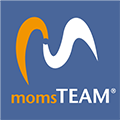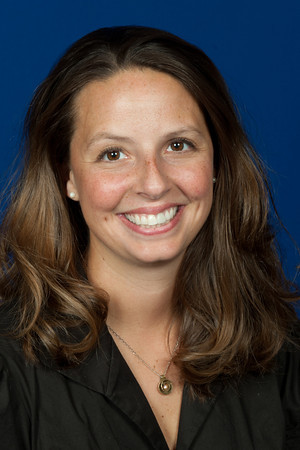
Building on the Six Pillars™ concussion risk management model featured in MomsTEAM's PBS documentary, The Smartest Team: Making High School Football Safer, the Institute is working with national, state, regional and local youth sports organizations (YSOs), university athletic training departments, parents, health care professionals, allied non-profits, governmental agencies and other experts to aggregate and/or develop and disseminate comprehensive, sport- and issue-specific, and easy-to-understand "best practice" standards of care templates and checklists covering all aspects of youth sports health and safety, from injury prevention and risk reduction, and nutrition and hydration guidelines, to preventing all forms of physical, psychological and sexual abuse. Once such best practices are established, local programs will be encouraged to apply to become SmartTeams.™
As a Pioneer Organization designated by UNICEF to implement and test the new International Safeguards for Children In Sport, SmartTeams will also be incorporating the holistic approach to youth sport safety set forth in the Safeguards, which are designed to help create a safe sporting environment for children wherever they participate and at whatever level, provide a benchmark to assist youth sports organizations and sports stakeholders to make informed decisions about safety, promote best practices and challenge practices that are harmful to children, and provide clarity on safeguarding children to all involved in sport.
While still in the developmental stage, SmartTeams best practices will incorporate many consensus recommendations developed by such groups as UNICEF, the National Athletic Training Association, leading medical societies, and governmental agencies such as the Centers for Disease Control and Prevention (CDC), adapted where appropriate, for use by youth sports programs that lack the resources of school-based programs (such as, for instance, relying on volunteers such as nurses, LPNs, EMTs, medical doctors, and other professionals in allied health fields to be present on the sports sidelines during games if a certified athletic trainer is not available.
Best practice topics
Among the topics, the SmartTeams best practice checklists and templates will cover are the following:
- Emergency preparedness (emergency action plan, first aid, EMS)
- Background checks
- Coaches’ safety training (first aid, CPR, AEDs, concussion awareness.)
- Athletic trainers/team doctors/EMS/trained volunteers
- Facility management (fields/rinks/courts/diamonds/pools etc.)
- Weather safety (lightning, heat/humidity, cold weather, sun safety)
- Education (coaches, parents, athletes, officials, health care providers)
- Risk reduction (properly fitted helmet, “heads up” tackling, limiting RHI
- Identification (e.g. sideline screening, honest self-reporting, sensors, creation of safe reporting environment, use of "buddy system")
- Diagnosis and Management
- Return to Learn and Return to Play
- Retirement
To visit our new SmartTeams Head Injury Safety Center, click here.
- Financial controls and transparency
- Corporate governance (e.g. term limits, board training)
- Coach selection, training, and evaluation
- Implementing best health and safety practices (e.g. SmartTeam™)
- Communicating among and between parents, players, coaches, administrators, officials, and health care professionals.
- Sports nutrition basics
- Pre-sports nutrition
- Snacks/meals
- Recovery diet
- Sport-specific nutritional guidelines (football, soccer, etc.)
- Nutrition for the injured athlete
- Disordered eating/female athlete triad
- Concession stands
- Sports hydration basics
- Heat safety (heat acclimatization, emergency preparedness, treatment, exertional sickling)
- Energy drinks
- Sports drinks
- Pre-participation physical exam (PPEs)(family history/EKG/echo)
- Chain of survival (first-aid, CPR, AEDs etc.)
- Emergency Action Plan
- First-Aid
- EMS
- Emotional/psychological (bullying, hazing, verbal abuse by coaches, parents etc.)
- Physical (overuse injuries; playing hurt etc.)
- Sexual (abuse/harassment, background checks, two-adult rule etc.)
- Prevention (goggles, face shields)
- First-aid treatment
- Prevention (e.g. mouth guards)
- First-aid treatment
- Prevention
- First-aid treatment
- Prevention (e.g. overuse injuries, neuromuscular training, strength and conditioning)
- Treatment (e.g. first-aid, physical therapy, return to play)
- Education
- Prevention
- Prevention
- Treatment
Smart Teams play safe™
The Institute will celebrate and highlight those youth sports programs that have adopted its SmartTeam™ approach to youth sports safety by listing such programs across all of its web platforms, including its 15-year old website, MomsTEAM.com, a stand-alone website (www.smartteamsplaysafe) and via social media, and add them to a database identifying every program that has achieved SmartTeam™ status.
2014 Pilot Programs
Six pilot programs were launched around the country in the fall of 2014, coordinated by the following outstanding athletic training educators:



Further details about the SmartTeamsTM program were announced by Dr. McLeod and the pilot program coordinators at the 2014 SmartTeams Play Safe Summit held at the Harvard Medical School's Martin Center on Monday, September 15, 2014 (see video below), and one, the Grand Prairie, Texas SmartTeam program coordinated by Cindy Trowbridge from the University of Texas at Arlington, was featured two days later on NBC's "Today Show."

2015 Grand Prairie SmartTeams/Unicef Pilot Program
In the fall of 2015, the Institute returned to Grand Prairie, TX to work with 1,000 youth tackle and flag football and cheer participants, coaches, and parents on implementation of SmartTeams™/Unicef best health and safety practices. (Major funding for the Grand Prairie SmartTeams/Unicef pilot program was provided by two of the Institute's sponsors, Hudl and i1 Biometrics).
In August, MomsTEAM Executive Director, Brooke de Lench, kicked off the pre-season by spending a week in Texas. Here are some of the highlights from her week in Grand Prairie:
- MomsTEAM donated 30 brand new SG Helmets and arranged to have the company’s sales director fly down from Indianapolis for the helmet fitting;
- Former Dallas Cowboy Caleb Hanie talked to the kids about the 250 Rock Solid flag football helmets his company donated to the program;
- 100 players were outfitted with Sisu mouth guards, courtesy of Arkervall Technologies, whose CEO flew in from Finland;
- The owners of Guardian Caps flew in from South Carolina to talk about the 60 soft practice helmets his company donated to Grand Prairie;
- The Chief Executive Officer of i1 Biometrics came from Seattle to outfit 100 tackle football players with his company’s Vector impact sensing mouth guards;
- The marketing director of Hudl, the Official Video Partner of SmartTeams, flew in from Wichita, Kansas to talk about the use of video as a tool in youth sports coaching and the company’s donation of over 200 Hudl accounts;
- Former Dallas Cowboy Hurles Scales and former Olympic staff chiropractor Dr. Steve Horwitz worked with the kids on strength and conditioning;Nationally recognized tackle coach Bobby Hosea came from Los Angeles to teach the kids proper tackling
- We raffled off four tickets for the October 11 game between the Cowboys and the Super Bowl champion New England Patriots, donated by MomsTEAM;
- Philips donated one of its HeartStart AEDs to the program;
- A representative from the local chapter of the American Red Cross held a day-long training session for parents and coaches in first aid, CPR, and the use of an AED;
- Dr. Elizabeth M. Pieroth, a neuropsychologist for the Chicago Bears and Cubs and consultant to the National Football League, flew in from the Windy City to speak to parents about concussion risk management in youth football;
- Dr. James MacDonald, a Pediatric Sports Medicine Specialist at Nationwide Children’s Hospital in Columbus, Ohio, spoke about preventing overuse injuries, implementing an Emergency Action Plan, and the importance of pre-participation physical exams; and
- Dr. Sophia Grant, a pediatrician at Cooks’ Children Hospital, gave an informative talk about protecting youth athletes from emotional, psychological and sexual injury and abuse.
For more information about the SmartTeams program, send an email to info@MomsTEAM.com.
SmartTeams Head Injury Safety Center
In August 2016, the Institute launched a website designed to improve concussion safety by showing how the immediate reporting by athletes of concussion symptoms is not only good for their brains but can help them achieve individual and team success.
Developed by the Institute as part of its SmartTeams Play Safe™ initiative with the financial support of a NCAA-DoD Mind Matters Challenge grant, the #TeamUp4ConcussionSafety™;program involves coaches, parents, and athletes in a season-long, multi-media effort to change individual and team reporting attitudes and norms towards concussion symptom reporting.
Based on research showing that the reason as many as 60% of concussions in sports still go unreported has less to do with an athlete’s;lack of knowledge about concussion symptoms and the health risks of continuing to play with such symptoms than with negative attitudes towards reporting and a sports culture in which athletes are expected to continue play hurt, the new program consists of five steps:
- Testing Knowledge and Attitudes. The process of reshaping attitudes and beliefs about concussion symptom reporting can only begin when athletes, coaches, and parents honestly assess what their beliefs are. To test their knowledge about concussions and find out whether they view reporting in a positive or negative light, every stakeholder will be asked to complete a series of
- Completing a Concussion Safety Course. Knowledge and awareness of concussion has increased substantially over the sixteen years that the Institute has been engaged in pioneering, cutting edge concussion education (first on its legacy site, and now on its new site. But, because there are still important gaps to fill, coaches, parents, and athletes will be encouraged in Step Two to continue learning about concussions by taking an online concussion education course and watching the Institute’s documentary, which has been just renewed by PBS for broadcast but is also now streaming for free on the new website;
- Attending a Concussion Safety Meeting. Because studies show that one-off concussion education isn’t enough to change concussion symptom reporting behavior, Step Three calls for parents, coaches, athletes and athletic trainers to attend a mandatory concussion safety meeting;before every sports season to learn in detail about the benefits of immediate concussion symptom reporting, not just in minimizing the risks concussions pose to an athlete’s short- and long-term health, but in increasing the chances for individual and team success by cutting the average time lost due to injury from six games to three.
- Taking a Concussion Safety Pledge. Step Four of the new SmartTeams Play Safe™ concussion safety game plan calls for stakeholders to demonstrate in a tangible way their commitment to creating a culture in which immediate reporting of concussion symptoms by athletes is a valued team behavior and the sign of a good teammate by;signing a concussion safety pledge
- Staying Involved/Sharing Successes. Because negative attitudes towards concussion symptom reporting are deeply entrenched in our sports culture, positive messages about the importance of immediate concussion symptom reporting will be reinforced via a social media campaign in which stakeholders will be encouraged to engage in an ongoing dialog about concussion safety.
We need your help
As a non-profit which distributes its content free of charge, the Institute must necessarily rely for its continued existence on the contributions of time, talent, and treasure of its friends. We ask that you please consider contributing to the Institute, and its work.








